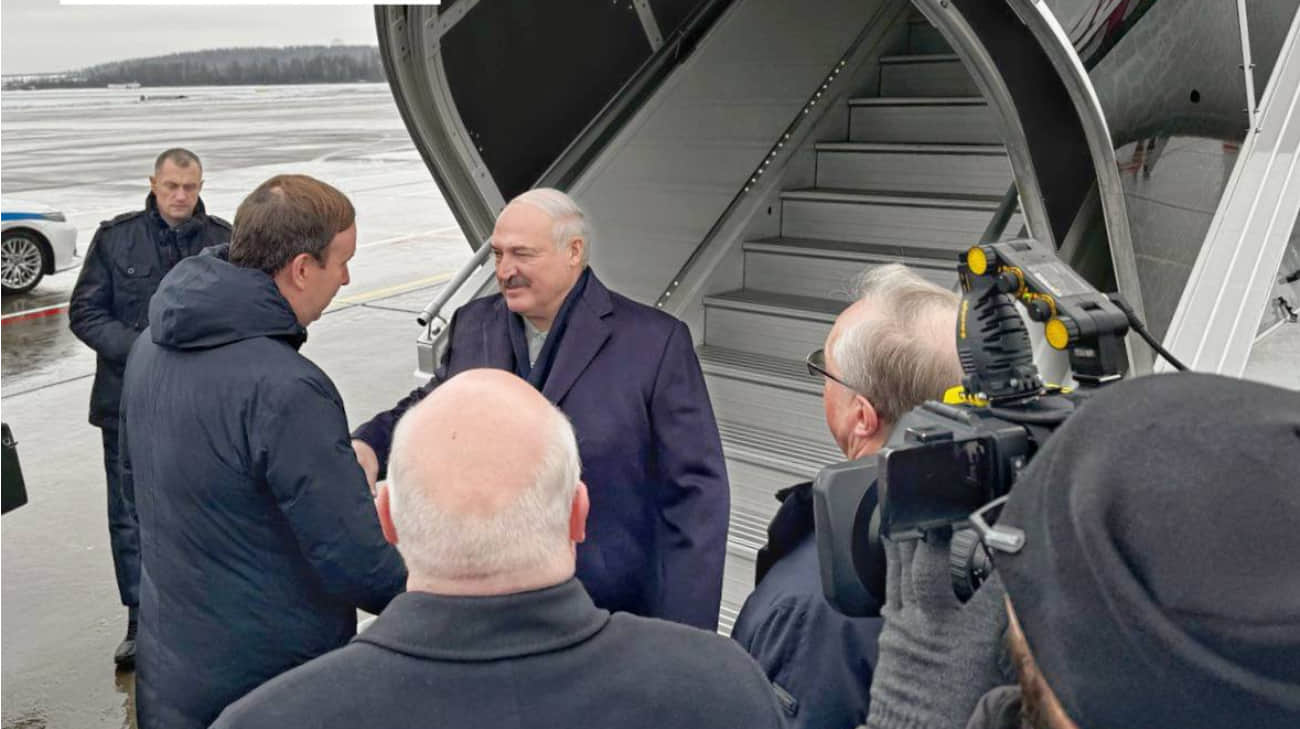Defence spending to rise to 2.5 per cent by 2027 via aid cuts, Starmer confirms
Sir Keir Starmer has announced the “biggest sustained increase in defence spending since the end of the Cold War” as he confirmed the UK would spend 2.5 per cent of GDP [gross domestic product] by 2027. The Prime Minister unveiled the policy in a statement to the House of Commons after reports he was set [...]


Sir Keir Starmer has announced the “biggest sustained increase in defence spending since the end of the Cold War” as he confirmed the UK would spend 2.5 per cent of GDP [gross domestic product] by 2027.
The Prime Minister unveiled the policy in a statement to the House of Commons after reports he was set to hike the UK’s military funding amid growing pressure from US President Donald Trump on NATO members to spend more on their own security.
UK defence spending will now rise from the current 2.3 per cent of GDP – a measure of national income – to 2.5 per cent within two years, with a new ambition to reach three per cent in the next Parliament, Sir Keir said.
It also comes after Trump began talks with Russian leader Vladimir Putin on ending the war in Ukraine, branded Ukrainian President Volodymyr Zelensky a “dictator” and suggested Kyiv was to blame for the conflict, ahead of a crucial visit by Starmer to Washington this week.
Starmer told MPs: “We must find courage in our history, courage in who we are as a nation, because courage is what our own era now demands of us.
“So starting today, I can announce this government will begin the biggest sustained increase in defence spending since the end of the Cold War.
“We will deliver our commitment to spend 2.5 per cent of GDP on defence, but we will bring it forward so that we reach that level in 2027, and we will maintain that for the rest of this Parliament.
“And let me spell it out, that means spending £13.4bn more on defence every year from 2027.”
To fund the increase, Starmer said international development assistance aid will be slashed from its current level of 0.5 per cent of gross national income to 0.3 per cent in 2027.
“In the short term, it can only be funded through hard choices… we will cut our spending on development assistance, moving from 0.5 per cent of GNI (gross national income) today, to 0.3 per cent in 2027, fully funding our increased investment in defence,” he told MPs.
And the Prime Minister set out: “I’ve long argued in the face of ongoing generational challenges, all European allies must step up and do more for our own defence.
“So subject to economic and fiscal conditions, and aligned with our strategic and operational needs, we will also set a clear ambition for defence spending to rise to three per cent of GDP in the next Parliament.
“I want to be very clear, the nature of warfare has changed significantly. That is clear from the battlefield in Ukraine, and so we must modernise and reform our capabilities as we invest.”
He added: “This investment means that the UK will strengthen its position as a leader in NATO and in the collective defence of our continent, and we should welcome that role.
“It is good for our national security. It is also good for the defining mission of this government – to restore growth to our economy.”
Conservative Party leader Kemi Badenoch urged not to “He must not “raise taxes further as it will destroy our economy, we need a strong economy to pay for strong defence”.
She said: “He cannot borrow more, we are already spending more on debt interest than defence. We all know that he must make difficult decisions on spending, he has our support to do that.”
While former Tory leader Sir Iain Duncan Smith urged Sir Keir Starmer to convince President Trump to stop “running around making adverse comments” and “link hands” with the UK.
And the former deputy foreign secretary Andrew Mitchell told the Commons that while he agreed with the “strategic direction… [and] defence and security must come first”, Starmer previously voted with him “against balancing the books on the backs of the poorest people in the world”.
Starmer insisted he was “proud of that vote”, and said the decision was not one “I want to make”.
Liberal Democrat leader Sir Ed Davey said he backed Starmer in raising defence spending but stressed it should “preferably use seize Russian assets to pay for extra support for Ukraine”.
He also urged the Prime Minister to reverse “short-sighted cuts of 10,000 troops from our armed forces”, which were made under the previous government.
Labour MP Sarah Champion, chairwoman of the cross-party International Development committee, said she was “bitterly disappointed” by the move and urged Starmer to “rethink”.
She called cutting aid a “false economy that will only make the world less safe”, and stressed that “conflict is often an outcome of desperation, climate and insecurity” and the announcement would be “endangering our long-term security”.
Paul Johnson, director of the Institute of Fiscal Studies (IFS), commented: “As the Prime Minister said, more spending on defence means less spending on other things.
“Another axe taken to overseas aid. Less than a decade ago we had a consensus on 0.7 per cent of GDP on aid. [It’s] now 0.3 per cent of GDP – a cut of more than a half.”
He added: “Further increases in defence will mean cutting the welfare state or raising taxes.”



